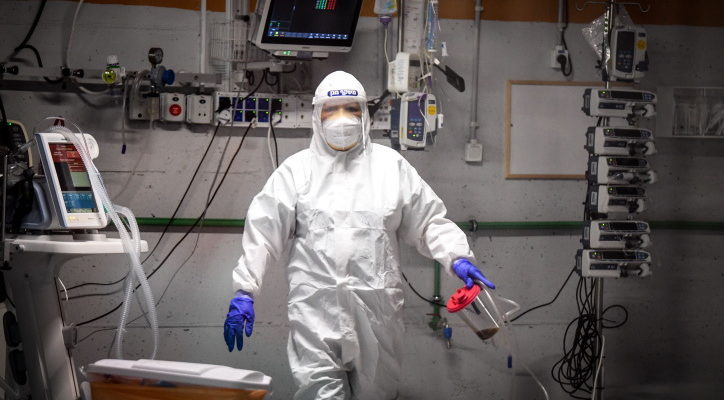The fourth vaccine study will involve about 150 health workers from Sheba, who received the third dose by the end of August.
By Aryeh Savir/TPS
The Sheba Medical Center launched on Monday a first-of-its-kind study in which a fourth Coronavirus (COVID-19) vaccine will be administered to volunteers to test the effectiveness of the fourth dose.
The study is based on the serology and immunity of the largest group of subjects in the world, numbering about 6,000 people.
The fourth vaccine study will involve about 150 health workers from Sheba, who received the third dose by the end of August and their serology result is below 700.
The experiment, conducted in collaboration with the Ministry of Health, was approved by the Helsinki Committee – the highest committee for experiments on humans.
The study will be led by Prof. Gili Regev-Yohai, director of the Infection Prevention and Control Unit.
“In this study, we will examine the effect of the fourth vaccine on antibody levels, on disease prevention and examine its safety. This study is expected to shed light on the additional benefit of giving the fourth dose, we will understand whether and to whom it is worth giving a fourth dose,” Regev-Yohai explained.
“This study and previous studies led by Sheba Medical Center make it possible to investigate issues that arise while managing the fight against the epidemic and to serve as the decision-makers in determining health policy in Israel and around the world,” he stated.
This study commenced as Israel’s Pandemic Expert Committee recommended a week ago to administer the fourth Coronavirus vaccination to adults over the age of 60 and medical personnel.
The operation requires the final approval of Health Ministry Director-General Professor Nachman Ash before it commences. He has yet to grant the approval.
Vaccinations rates in Israel in recent weeks have been low, with some 1.7 million Israelis who have not received the third vaccine, and only a small number of children who received their initial pair of shots.




